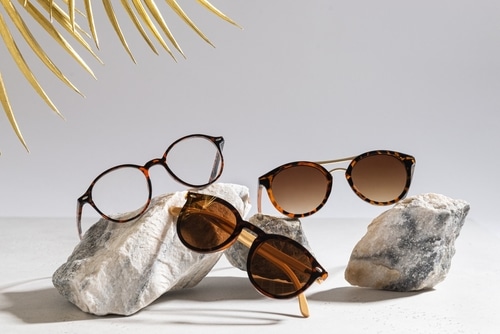When it comes to outdoor activities, one accessory that often gets overlooked is sunglasses. However, choosing the right pair is more than just a fashion statement. It’s a matter of health and safety. Sunglasses protect our eyes from harmful UV rays and other environmental elements. Whether hiking, cycling, or simply enjoying a day at the beach, the right sunglasses can enhance your experience while safeguarding your vision. In this article, we’ll explore the importance of choosing the right sunglasses for outdoor activities and their role in protecting your eyes.
Understanding the Basics of Outdoor Sunglasses
When it comes to understanding the basics of sunglasses, it’s essential to delve into the science behind how they protect your eyes. Sunglasses are not just a stylish accessory; they serve a crucial purpose in shielding our eyes from harmful elements.
Firstly, the primary function of sunglasses is to provide UV protection. Exposure to UV rays can lead to several eye problems, including cataracts and macular degeneration. Therefore, it’s crucial to choose sunglasses that block 100% of both UVA and UVB rays.
Secondly, another significant aspect of sunglasses is polarization. Polarized sunglasses reduce glare reflected off surfaces like water or pavement, which can be particularly beneficial for activities like driving or fishing. This feature enhances visual comfort and clarity, allowing for a more enjoyable outdoor experience.
In summary, when choosing sunglasses:
- Look for 100% UV protection to shield your eyes from harmful rays.
- Consider polarized lenses to reduce glare and enhance visual clarity.
Choosing Sunglasses for Specific Outdoor Activities
Different outdoor activities require different types of sunglasses. Here’s a breakdown of what to look for based on the activity:
- Running: The importance of lightweight and secure-fit sunglasses cannot be overstated for runners. They should stay on your face without causing discomfort, even during vigorous movement. Look for sunglasses with non-slip features and a snug fit.
- Cycling: Cyclists need sunglasses with clear vision, wind protection, and a secure fit. Look for frames with anti-slip nose pads and temples to ensure your sunglasses stay put during your rides. Additionally, lenses that enhance contrast can help navigate different terrains effectively.
- Skiing/Snowboarding: Large frames and polarized lenses are crucial for snow sports like skiing and snowboarding. They reduce glare and enhance slope visibility, providing a safer and more enjoyable experience.
- Fishing: When you’re out on the water fishing, your sunglasses should provide serious sun protection and minimize glare off the water. Polarized lenses can significantly reduce glare, making seeing beneath the water’s surface easier.
- Golfing: Golfing requires sunglasses with precise vision and protection on the greens. Look for lightweight frames with non-slip features to ensure a comfortable fit during your swings. Lenses that enhance color contrast and depth perception can help with better ball tracking.
- Driving: It’s essential to have sunglasses that reduce glare and enhance visibility on the road. Polarized lenses with a neutral tint that won’t distort colors are an excellent choice for driving.
- Beach Activities: At the beach, you need sunglasses that provide ample coverage to block the sun’s intense rays. Look for oversized frames with UV-protective lenses to shield your eyes while you enjoy the sand and waves.
- Hiking: When hiking, you need sunglasses that offer exceptional clarity and protection from the elements. Look for durable frames with impact-resistant lenses that can withstand rugged terrain.
- Festival: Festivals are full of activities and bright lights. You need sunglasses that are stylish and lightweight for comfort throughout the day. Look for a lightweight frame to stay comfortable in bright sunny weather for a full fun day.
Choosing the right sunglasses for outdoor activities can significantly enhance your performance and enjoyment while ensuring your eyes are well-protected.
Factors to Consider When Choosing Sunglasses
When choosing sunglasses for outdoor activities, there are several factors you should consider to ensure you get the most out of your eyewear:
- Fit and Comfort: The sunglasses should fit nicely on your face and feel comfortable even after wearing them for extended periods. They should not pinch behind your ears or slip down your nose. A good fit ensures that your sunglasses stay in place and provide optimal protection.
- Durability: Given the nature of outdoor activities, your sunglasses should be durable enough to withstand various conditions. Look for frames made from sturdy materials like polycarbonate or nylon, known for their durability and impact resistance.
- UV Protection: One of the primary functions of sunglasses is to protect your eyes from harmful UV rays. Always choose sunglasses that block 100% of both UVA and UVB rays.
- Activity-specific Features: Your sunglasses may need specific features depending on the outdoor activity. For instance, you might want polarized lenses to reduce glare for water sports. You might need sunglasses with side shields for high-altitude activities for additional protection.
Considering these factors, you can choose the perfect sunglasses that enhance your outdoor experience and provide eye protection.
Conclusion
In conclusion, choosing the right sunglasses for outdoor activities is an investment in your eye health and overall performance. By selecting high-quality, activity-specific sunglasses, you ensure optimal eye protection and enhanced visual clarity, which can significantly improve your outdoor experience. So, whether you’re hitting the slopes, casting a line, or enjoying a sunny day at the beach, don’t overlook the importance of a good pair of sunglasses. Remember, your eyes are as important as any other body part when gearing up for the great outdoors. Protect them well; they’ll help you see the world in its best light.
Can I use regular fashion sunglasses for outdoor sports?
While fashion sunglasses can provide some UV protection, they may not have the specific features needed for outdoor sports, such as impact resistance or a secure fit. It’s best to use sports-specific sunglasses for these activities.
Are polarized lenses essential for outdoor activities?
Polarized lenses can significantly reduce glare, benefiting activities near water or snow. However, they are not essential for all outdoor activities.
What are the benefits of anti-slip nose pads on sports sunglasses?
Anti-slip nose pads help keep your sunglasses in place during physical activities, preventing them from slipping down your nose when you sweat.
Can I wear contact lenses with sports sunglasses?
Yes, you can wear contact lenses with sports sunglasses. However, some people find it more convenient to use prescription sunglasses during their activities.
Do mirrored lenses provide better UV protection?
Mirrored lenses can reduce glare and are often used in high-glare environments. However, they do not provide additional UV protection compared to non-mirrored lenses. Always check the UV protection level of the sunglasses, regardless of the lens type.

